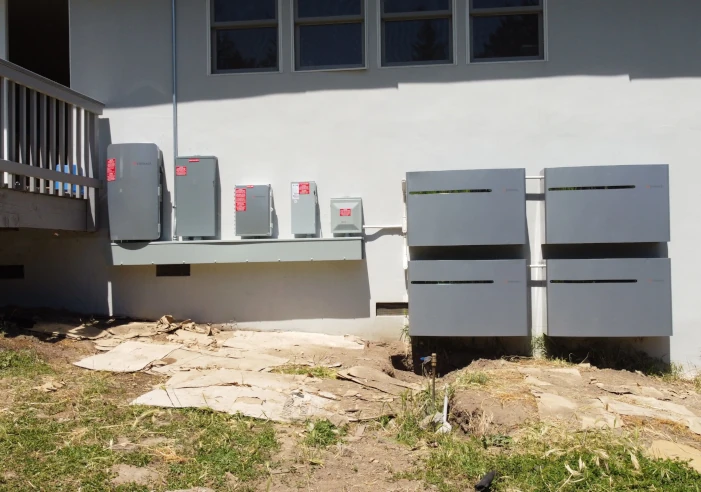
Whether you’re looking to save on your electricity bills or completely take your home off the grid, the solar + battery install service is a good fit. If you get power from the utility company, batteries paired with solar energy will boost your future energy independence even if you don’t see any initial savings.
The solar and battery system is the backbone of any off-grid system. Your batteries are what store the energy produced by your solar panels so that you can use them at night or on cloudy days. The size of your battery bank depends on how much electricity you need to store and how long you want your power to last between charges.
Solar batteries store excess electricity generated by your solar panels for later use. During the day, when your panels produce more energy than your home needs, the surplus power charges the battery. When the sun goes down or during a power outage, the battery discharges stored energy to keep your home powered. Many solar batteries also integrate with smart energy management systems, allowing you to optimize usage based on time-of-use (TOU) rates and maximize savings.
The duration a solar battery can provide power depends on its capacity, your energy usage, and the load being powered. On average, a typical home battery can supply electricity for several hours to a full day during an outage. If paired with solar panels, the battery can recharge daily, extending backup power indefinitely. Smart energy management can also help extend battery life by prioritizing essential loads.
Yes, various incentives may be available, such as federal tax credits, state rebates, and utility programs. It’s best to check with your CPA, local authorities, and Utility provider for specific incentives in your area.
Yes, most existing solar panel systems can be retrofitted with a battery storage system. Consult with our team to determine compatibility and installation requirements.
Solar batteries generally last between 10 to 15 years, depending on the type and usage. Most batteries come with a warranty that covers 10 to 15 years. Ask our team how we can cover your battery for 30 years.
Solar batteries require minimal maintenance, but periodic checks can help ensure optimal performance and longevity. Most modern lithium-iron phosphate batteries, like the Franklin, Enphase, Tesla batteries are designed to be low-maintenance and include built-in monitoring systems.